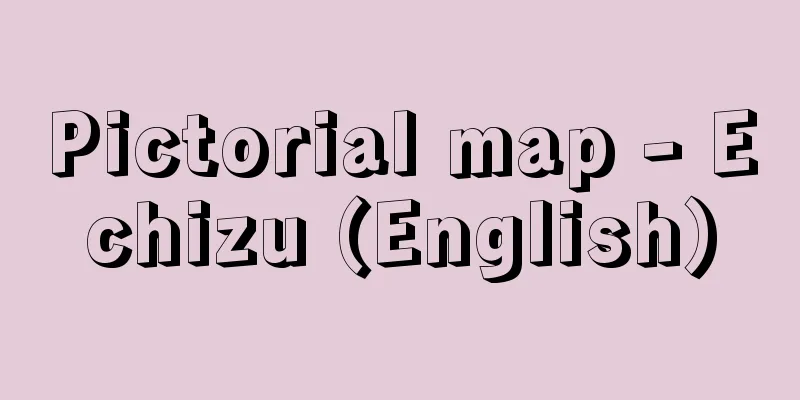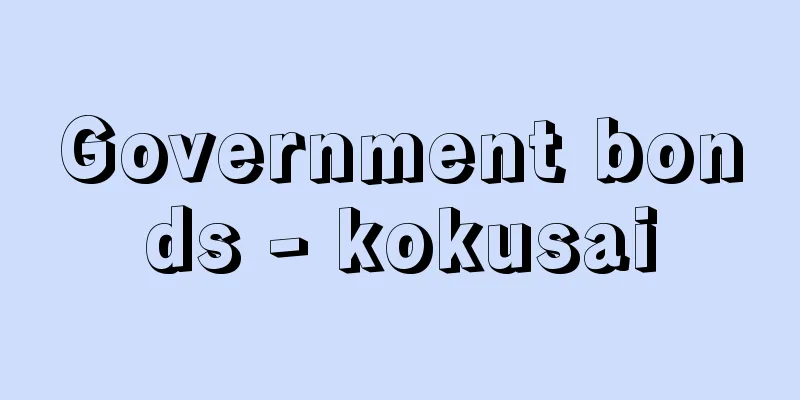Divisional system (English spelling)

|
A decentralized management organization is one in which a company's organization is primarily organized by comprehensive business criteria such as by product, region, or market, and each sub-organization is given a great deal of freedom as a business division. In contrast to this is the functional departmental system (functional departmental organization), in which the primary division is by function, such as manufacturing, sales, finance, and purchasing, but this organization cannot delegate authority for overall decisions or horizontal adjustments to each division, so it has to be a centralized management organization. When a large-scale company adopts a centralized management system, it gives rise to bureaucratic disadvantages such as slow decision-making, poor communication, and reduced motivation. In addition, large-scale companies usually have diversified business operations, and it is often difficult and ineffective to manage them centrally at the central office. For these reasons, large-scale diversified companies often adopt a divisional system. In such cases, the headquarters is only responsible for coordinating between divisions and making company-wide and long-term strategic decisions, and each division strives to achieve the goals (typically profit goals) set by the headquarters at its own discretion. In order to stimulate the independent efforts to achieve such goals and to objectively measure and evaluate the results, it is common for divisions to be on an independent accounting system. For this reason, the exchange of goods and services between divisions within the same company is treated as a sale and purchase, and there are even cases where each division is given the authority to avoid "transactions" unless certain conditions are met. [Mitsuo Morimoto] "Shinji Imanishi, 'Understanding the Divisional System' (1988, Management Company)" "Shinji Imanishi, editor, 'The Reality of Divisions' (1991, Management Company)" [References] | |Source: Shogakukan Encyclopedia Nipponica About Encyclopedia Nipponica Information | Legend |
|
企業の組織を製品別、地域別、市場別など包括性のある事業別基準で第一次的に編成し、各部分組織を事業部として大幅な自由裁量を与える分権管理組織のこと。これに対照されるのは、製造、販売、財務、購買などの職能を第一次区分とする職能部門制(職能別部門組織)であるが、この組織では全体的な決定や水平的調整の権限を各部へ委譲できないため、集権管理組織とならざるをえない。大規模企業組織で集権管理方式をとると、意思決定の遅鈍化、意思疎通の悪化、意欲の低下など、官僚制的弊害が生ずる。 また、大規模企業組織では、事業内容を多角化しているのが普通であり、それらを一元的に中枢部で管理することは困難が多く、しかも効果があがらない。これらの事情から、多角化した大規模企業では、事業部制が採用されることが多い。その場合、本社には、事業部間の調整と全社的・長期的な戦略上の決定のみが留保され、各事業部は、本社から与えられた目標(利益目標が典型である)を自己の裁量によって達成するよう努力する。このような目標の自主的達成努力を刺激するとともに、その成果を客観的に測定・評価するため、事業部を独立採算制とするのが一般である。このため、同一企業内の事業部相互間の財・サービスの授受は、売買に準じて処理され、条件が整わなければ「取引」を忌避する権限を各事業部に与える例さえも現れている。 [森本三男] 『今西伸二著『事業部制の解明』(1988・マネジメント社)』▽『今西伸二編著『事業部の実際』(1991・マネジメント社)』 [参照項目] | |出典 小学館 日本大百科全書(ニッポニカ)日本大百科全書(ニッポニカ)について 情報 | 凡例 |
<<: Private teachings collection - Shikyōruijū
>>: Business transformation - business epilepsy
Recommend
Takegoshi Yosaburo
A historical commentator, journalist, and politic...
Kjarval, J.
...However, in terms of visual arts, not many not...
Musaka
...Although the names of dishes derived from Turk...
Ubuyama [village] - Ubuyama
A village in Aso District, Kumamoto Prefecture. Po...
Wage structure - Chingin Kozo (English spelling) wage structure
This is the actual state of wages when the indivi...
Aragon Incident
…His eloquent literary talent, mixing humor and l...
Border Leicester
…The most common varieties are Lincoln (native to...
Uganda National Congress
… In 1949, after the Second World War, popular ri...
Isnard - Isnard
...The issue of generations in hadith studies is ...
World Federation of Democratic Youth
...The purpose of this was to encourage youth fro...
Futurism
…At the start of the 20th century, the Italian th...
Raindrops Keep Fallin' On My Head
…Since 1957, he has produced many hit songs, and ...
Ganlan (English spelling)
In China, this refers to a building with a raised ...
Fujiwara no Tanetsugu - Fujiwara no Tanetsugu
A politician from the late Nara period to the ear...
IPC (company name)
...He was a leading figure in the so-called "...









